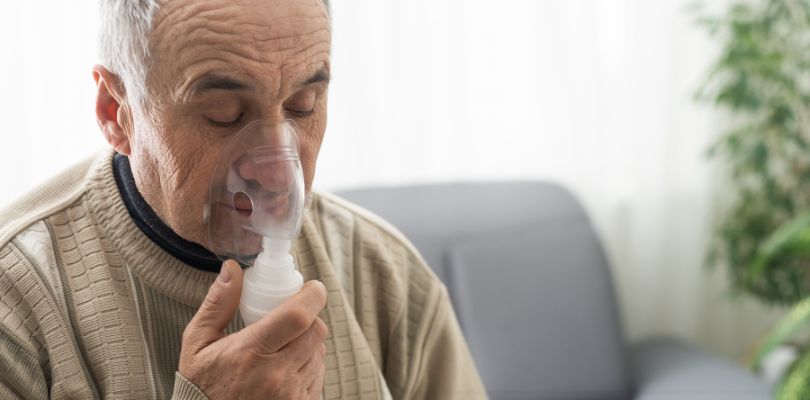Red Flags to Watch For
Knowing the signs of COPD is important so you can get help early. Here are ten common signs of COPD:
10 Signs of COPD
1. Shortness of Breath
Many people with COPD feel out of breath, especially when doing everyday activities like climbing stairs or walking.
2. Chronic Cough
A persistent cough that lasts for a long time can be a sign of COPD. This cough may produce mucus.
Are you tired of the inflammation caused by your psoriasis? Read on to learn about the best food for psoriasis.
3. Wheezing
Wheezing is a whistling sound when you breathe. It can happen during physical activity or while resting.
4. Chest Tightness
People with COPD often feel tightness or pressure in their chest. This feeling can be uncomfortable and frightening.
5. Frequent Respiratory Infections
Individuals with COPD may catch colds or other infections more often. Their lungs can struggle to fight off germs.
6. Fatigue
Feeling tired or weak is common in people with COPD. Breathing requires more energy, which can lead to exhaustion.
7. Swelling in the Feet or Ankles
Some people with COPD may notice swelling in their feet or ankles. This can happen because of fluid buildup in the body.
8. Cyanosis
Cyanosis is when your lips or skin turn a bluish color. This can happen when there isn't enough oxygen in the blood.
9. Unexplained Weight Loss
Losing weight without trying can be a sign of COPD. This may happen because the body uses more energy to breathe.
10. Changes in Mucus
If you notice changes in your mucus, like increased amounts or a change in color, it can be a sign of COPD.
Treatment Options for COPD
If you or someone you know has signs of COPD, it’s important to see a doctor. Early diagnosis and treatment can help manage the condition. Here are some common treatment options:
Medications
- Bronchodilators: These help relax the muscles around the airways to make breathing easier.
- Steroids: These reduce inflammation in the lungs.
Pulmonary Rehabilitation
This program includes exercises and education to help people with COPD improve their lung function and overall well-being.
Oxygen Therapy
Some people with COPD may need extra oxygen to breathe better, especially during activities.
Lifestyle Changes
- Quit smoking: If you smoke, quitting is the most important step to help your lungs.
- Healthy diet: Eating well can support lung health and overall strength.
Vaccinations
Getting vaccines, like the flu shot and pneumonia vaccine, can help prevent infections.
Surgery
In severe cases, some people may benefit from surgery to remove damaged parts of the lung.
Spotting COPD
If you notice any signs of COPD, talk to a healthcare professional for guidance and treatment. Early intervention can make a big difference in managing the disease.
Read on to learn about the signs of breast cancer.







